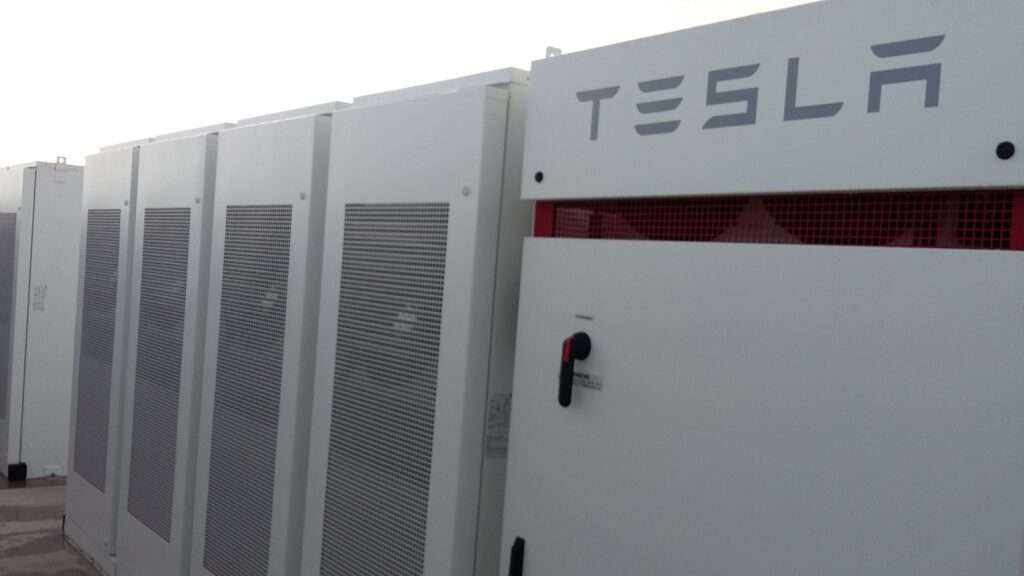
London Stock Exchange-listed energy storage investor Gore Street Capital CEO Alex O’Cinneide discussed its fund’s recent expansion outside UK/Ireland and which markets are most of interest, in an interview with Energy-storage.news.
Gore Street Capital is the fund manager of the Gore Street Energy Storage Fund PLC, a £560 million (US$710 million) market cap investment vehicle which recently branched out of the UK and Ireland for the first time with deals in Germany and Texas, USA. It then raised another £150 million to execute on its 1.3GW acquisition pipeline comprising 900MW in Great Britain (GB), 375MW in North America and 100MW in Europe.
Enjoy 12 months of exclusive analysis
- Regular insight and analysis of the industry’s biggest developments
- In-depth interviews with the industry’s leading figures
- Annual digital subscription to the PV Tech Power journal
- Discounts on Solar Media’s portfolio of events, in-person and virtual
“So the target for our portfolio is now 40% GB/Ireland and then 60% Western Europe and North America, but we’re currently at 85% GB/Ireland so it will be a while before we get there. Basically, half of our portfolio will always be GB/Ireland,” O’Cinneide said. In this case Great Britain encompasses England, Scotland and Wales but not Northern Ireland, which has a grid shared with the Republic of Ireland to the south.
The GB storage market is still very fragmented, with Gore Street’s market share of operational battery storage capacity at 12-13%, and only a few percent at most of the development pipeline (based on Solar Media’s UK Battery Storage Project Database Report figures). Considering this, Energy-storage.news asked O’Cinneide why it decided to diversify from GB/Ireland in the first place.
“We’ve been an international player since 2019 with Ireland. We can leverage our expertise in supply chain as it is the same manufacturers across markets, and it’s the same types of revenues too, albeit with different regulations. For us it allows a diversification away from just GB and Ireland and gives us more growth opportunities,” he said.
O’Cinneide was then asked whether it was the expectation of falling returns in the UK market this year which prompted the move. He indicated that the high prices seen recently may stay longer than expected as the market saturates less quickly than some forecasts.
“We believe that the GB market still has very strong growth opportunities for us. We’re definitely seeing all-time high pricing across grid balancing but we believe that will remain for a while. Yes, there is a big buildout coming but we don’t believe all of that will get built because of pressures on supply chain and new entrants just not having the relationships to guarantee project delivery.”
The discussion then moved on to how Gore Street had approached its internationalisation and how this differed to its GB and Ireland approach.
O’Cinneide said the firm has been looking at deals in North America and West Europe since 2019. He sees operational assets as a good first point of entry in a new market as it provides immediate hard data on asset performance and certainty about operational activity. He also said that the UK’s relatively earlier move to a merchant business model, where even grid balancing contracts are very short-term, sets Gore Street apart in other markets too.
He added that most markets have similar revenues per MW/MWh to GB/Ireland with the Texas ERCOT market a little higher. Gore Street aims for a 10-12% internal rate of return (IRR) across its portfolio, which it over-achieved on last year with 14.1%.
Strong returns should now be achievable in Germany where a utility-scale BESS market which has been fairly stagnant in recent years by deployments nonetheless saw a six-fold increase in overall revenues last year.
O’Cinneide: “Germany is a big opportunity. It’s a very stable and large economy with incredible underpinnings to the relevant macro themes like climate change and energy security. Revenues there are nearly all grid balancing, very similar to GB.”
“Bread and butter for us is buying projects from developers and taking them into construction ourselves as we like to own the EPC process and I would imagine you will start seeing more of that from us in Germany. There aren’t that many operational assets for sale there.”
ERCOT, meanwhile, is one of the markets where BESS projects have the highest proportion of revenues from energy trading at around 50% with grid balancing the other 50%. O’Cinneide said an optimal revenue mix in the UK is 80-85% grid balancing, 10% capacity and 5-10% energy trading, although market intelligence firm Modo Energy reckons this is shifting towards more trading.
Acquisitions in ERCOT have so far been under the 10MW range, as many projects are that size owing to quicker regulatory processes, but O’Cinneide said much larger assets of up to 200MW are in Gore Street’s sights. The two other US markets Gore Street is eyeing are the California CAISO market and the Northeast Corridor which falls under New England ISO‘s responsibility.
So what other markets does he see as attractive in Europe?
“Italy is an interesting market we’ve looked at for many years but haven’t yet done anything in. It has a high level of penetration of solar and wind and it’s not as connected to the other mainland Europe grids because of the Alps, which creates an opportunity. There is a series of auctions which the grid operator is looking at putting in place just like National Grid did in GB, with different products coming online that energy storage asset owners can participate in.”
“Greece is also putting in place some auctions which are similar to National Grid’s which of course are very interesting,” he added, before emphasising that Germany is the main market in Europe for the firm. Greece just last week announced plans to double its energy storage 2030 target to 3GW and could launch a tender for projects totalling 800-900MW in September this year.

